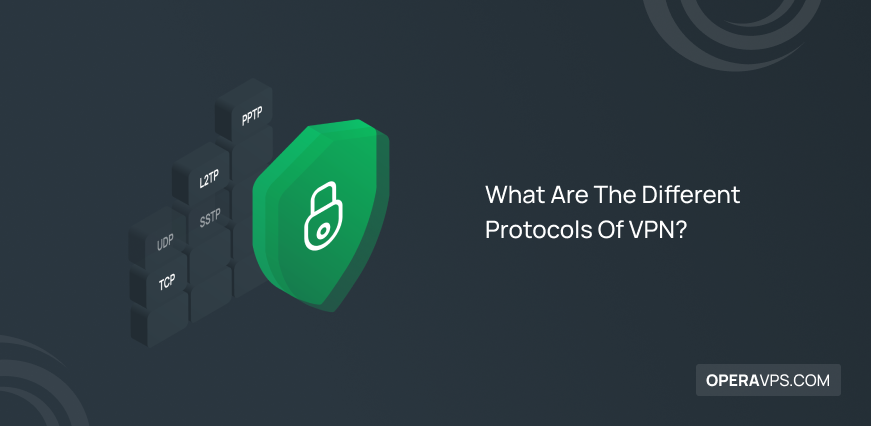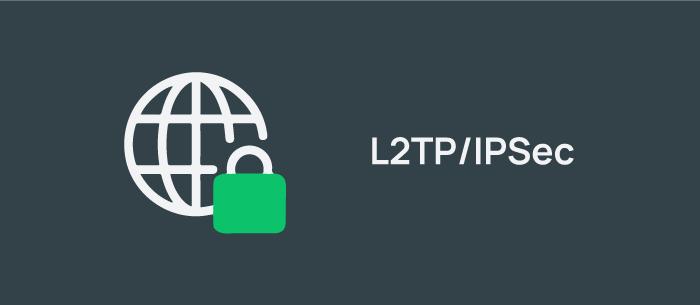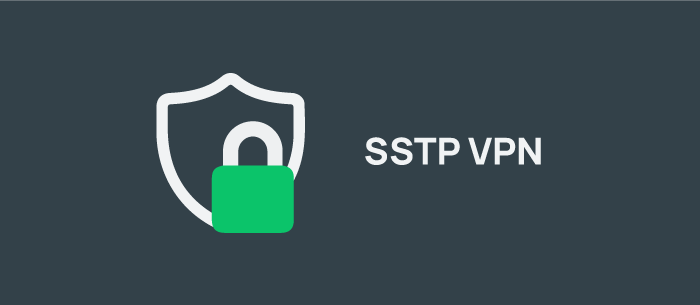
Best VPN Protocols Compared in 2024
A Virtual Private Network Protocol, or VPN protocol, is a group of rules that set how the data is transmitted between the client’s device and the VPN server.
Different VPN protocols are designed to meet various needs. Some are good at security, some at speed, and some well-balanced.
11 Common VPN Protocols
Before diving deep to analyze every protocol, let’s have a general look at them. These are the types of protocols used in VPN:
| VPN Protocol | Connection Speed | Encryption | Stability | Privacy | Gaming | Streaming | Torrenting | Platforms |
|---|---|---|---|---|---|---|---|---|
| PPTP | Very Fast | Weak | High | Weak | Weak | Good | Weak | Most of Platforms |
| L2TP/IPsec | Average | Average | Average | Good | Good | Good | Average | Most of Platforms |
| SSTP | Fast | Good | High | Good | Good | Average | Good | Windows/ Android/ Routers/ Linux |
| IKEV2/IPsec | Very Fast | Good | High | High | Very Good | Good | Good | Windows/ macOS/ iOS |
| OpenVPN(UDP) | Fast | Very Good | Average | Good | Very Good | Very Good | Good | Most of Platforms |
| OpenVPN(TCP) | Average | Very Good | High | High | Average | Average | Good | Most of Platforms |
| Wireguard | Ultra Fast | Good | High | Good | Good | Average | Average | Most of Platforms |
| Shadowsocks | High | Weak | Good | Average | N/A | N/A | Good | Windows, Linux, Mac, Android, iOS |
| SSL | Good | Very Good | N/A | Good | N/A | N/A | Good | N/A |
| TLS | Good | Very Good | N/A | Good | N/A | N/A | Good | N/A |
| OpenConnect | Good | Good | Weak | Good | N/A | N/A | N/A | Widnows/ Linux/ macOS/ Android |
PPTP (Point To Point Tunneling Protocol)
The PPTP VPN protocol, the least secure one among all, has been in use since the 1990s. It stands for Point-to-Point Tunneling Protocol and is developed by Microsoft.
This protocol has various security vulnerabilities that jeopardize the communications and data of organizations.
PPTP has become one of the most commonly used protocols because it is easy to use and embedded in most operating systems.
The downside of the PPTP is its vulnerability and lack of privacy and encryption. But it can be the best option if security is of no importance.

L2TP/IPSec (Layer 2 Tunneling Protocol)
L2TP stands for Layer 2 Tunneling Protocol, which is a Virtual Private Network protocol that does not encrypt data itself.
That’s why it needs to be paired with another protocol (IPsec) for data encryption.
The combination of the L2TP/IPSec protocols is supported and embedded in newer and most operating systems.
L2TP/IPSec is easy to use and configure. But when using L2TP/IPSec, you may not easily bypass firewalls and would be better off using other protocols.

SSTP (Secure Socket Tunneling Protocol)
SSTP stands for Secure Socket Tunneling Protocol, and along with the SSL protocol for encryption, it is very suitable for VPN connections.
Microsoft developed this protocol to replace the older PPTP and L2TP protocols, and it best operates on the Windows platform rather than the others.
SSTP has unwavering encryption that entirely protects the data. Meanwhile, this heavy encryption algorithm results in a slow speed.

IKEv2/IPsec (Internet Key Exchange version 2)
Internet Key Exchange version 2 (IKEv2/IPsec) is another Protocol that is paired with IPsec. It is a joint product of Cisco and Microsoft and is compatible with various platforms.
When the connection drops, it quickly reconnects, which is a great advantage for mobile users. IKEv2/IPsec is one of the few protocols that support Blackberry.
IKEv2/IPsec is stable, safe, and ideal for mobile users. But as it is paired with IPsec, it has integrated its drawbacks, too. Firewalls can also block it.

OpenVPN
As the world’s widely used VPN protocol, OpenVPN is a secure protocol that uses OpenSSL and SSL/TLS for encryption.
Many configurations can be made since it is open source, and when used with the AES-256 encryption algorithm, it becomes one of the most secure VPN protocols.
Using third-party software, this protocol is supported by various OSs. Meanwhile, OpenVPN uses UDP and TCP protocols.
Despite OpenVPN’s strong encryption and security, it lacks a decent speed compared to Wireguard or IKEv2/IPsec. And the manual configuration or the need for third-party software is a downside, too.

Wireguard
Wireguard is an open-source, general-purpose, and free VPN protocol built to cover the shortcomings of other VPN protocols. It is very lightweight and ultra-fast.
Wireguard aims to enhance the overall performance, ease of use, and speed of the VPN services, which has been successful.
However, the shortcoming of Wireguard is its low privacy, like static IP, and the act of storing the user’s IP addresses until the server reboots.

Shadowsocks
Using Shadowsock, neither your ISP (Internet Service Provider) nor the government will be able to know which websites you have visited.
Also, the transmitted traffic through Shadowsocks is very similar to the normal internet traffic; hence, ISPs and the government cannot recognize that you use Shadowsocks.
This is why Shadowsocks is the best option to bypass geographic censorship and content restrictions.
But it goes without privacy and security. Shadowsocks does not change your IP. It disguises your internet traffic.

SSL (Secure Sockets Layer)
Secure Sockets Layer or SSL protocol has been created to avoid the complexities of IPsec and cover each remote user on nearly every platform.
SSL protocol guarantees privacy and data security. It is used on famous web browsers and does not need any third-party client software.
SSL is mainly implemented in websites, and the URL of any website that has an SSL protocol starts with “https”
When SSL is implemented on a website, it gains users’ trust and acts as a sign of validation. Older versions of SSL are not recommended to use since they are vulnerable to cyber-attacks.

TLS (Transport Layer Security)
Transport Layer Security (TLS) is the next generation of the SSL protocol. Much like SSL, TLS is appropriate for remote connections and safe web surfing.
VPN companies mainly implement TLS and SSL for web communication applications and web surfers.
One of the main advantages of TLS over SSL is that it is reactive to what happens during a session and will alert the user.
But TLS has a higher latency compared to other protocols of VPN. Like SSL, its older versions are no longer invulnerable to attacks.

OpenConnect
OpenConnect is a cross-platform, free, and open-source VPN client that supports multiple VPN protocols.
Its stable release was on May 20, 2023, which labels it the new VPN protocol and client software released.
The motivation behind writing the OpenConnect was to replace the Cisco Anyconnect client.
OpenConnect is stealthy, stable, reliable, fast, and open source. Since it is newly released, we shall wait to see its downsides.

What is a VPN protocol?
A VPN protocol is designed to create tunnels and encrypt the transferred data. It acts as a communication protocol and is necessary for VPNs to operate.
If we assume the transferred data is the cars on the streets, the VPN is the city streets, and the VPN protocol is the traffic laws and driving rules.
This is the way data transfers through VPN under the VPN protocol rules.
What’s the best VPN protocol to use?
To determine which VPN protocol is the best to use, we have to consider two factors. The first and most important one is the reason you are using a VPN.
The second is the overall situation of your internet connection, like how fast and stable it is. Then, the answer lies below:
| Case | Protocol |
|---|---|
| Privacy | OpenVPN |
| Remote Connections | OpenVPN |
| Gaming | WireGuard / OpenVPN(UDP) |
| Torrent Downloading | IKEv2/IPsec |
| Streaming | WireGuard |
| Access To Restricted Content | Shadowcocks |
| Most Compatible | OpenVPN |
| Speed | Wireguard |
What is every VPN protocol best for?
| VPN Protocol | Good For |
|---|---|
| PPTP | Situations Where Security Is Not Important |
| L2TP/IPsec | Dial-Up Connection |
| SSTP | Accessing Networks |
| IKEV2/IPsec | Older Devices And Smart Phones |
| OpenVPN(UDP) | Gaming, Streaming, Routers and Daily Use |
| OpenVPN(TCP) | Safe Data Transmission, Uninterrupted Connections, Streaming, Daily Use |
| Wireguard | Daily Use/ Mobile Devices |
| Shadowsocks | Private Web Browsing, Access to Censored And Restricted Content |
| SSL | Safe Web Browsing/ Remote Connections |
| TLS | Safe Web Browsing/ Remote Connections/ Web Communication Applications |
| OpenConnect | Cisco Routers/A Replacement For Cisco Anyconnect Client |
OpenVPN vs. Wireguard
- Wireguard is much lighter than OpenVPN, resulting in a 3.2 times faster speed.
- OpenVPN offers a larger number of cryptography algorithms than Wireguard.
- In terms of configuration, Wiregaurd is far simpler to configure and use than OpenVPN.
- Unlike Wireguard, to use OpenVPN, you need third-party software.
Bottomline: Wireguard is still developing, and if you are sensitive about your data, you’d better use OpenVPN till Wireguard finishes the development process.
OpenVPN vs. SSTP
- OpenVPN heavily relies on third-party software, and its manual configuration is technical, while SSTP is integrated into the Windows platform.
- Both OpenVPN and SSTP VPN protocols have multiple encryption algorithms.
Bottomline: OpenVPN and SSTP offer rigid security and privacy. They have no difficulties bypassing firewalls.
If you prefer to use an open-source VPN protocol, go for OpenVPN, and if you are a Windows user, SSTP might be better than OpenVPN for you.
Wireguard vs. IKEv2/IPsec
- IKEv2/IPsec is better for Mobile devices since the connection does not drop when switching between data and wi-fi. Plus, IKEv2/IPsec supports BlackBerry.
- Both protocols are fast, but Wireguard is a little bit faster.
- Wireguard and IKEv2/IPsec are secure and private. Wireguard’s cryptography is superior to IKEv2/IPsec.
Bottomline: Both Wireguard and IKEv2/IPsec are decent protocols in all aspects. IKEv2/IPsec is recommended for use on mobile devices.
What is the most powerful VPN protocol?
Right away, OpenVPN is the most powerful and popular VPN protocol overall.
Which VPN protocol to choose for iPhone?
In these cases, we offer the following VPN protocols to use on iPhone/iOS:
- Wireguard for speed
- OpenVPN for privacy
- IKEv2/IPsec for both
Which VPN protocol to choose for Android?
The best Android VPN protocol for both privacy and speed is IKEv2/IPsec. However, OpenVPN is also a decent choice for privacy and security.
What is the most secure VPN protocol?
OpenVPN is the most secure VPN protocol and the safest choice, thanks to its near-unbreakable encryption, which keeps users’ data private.
Which VPN protocol has the lowest latency?
Wireguard, the modern VPN protocol, has the least latency among all VPN protocols.
What is the fastest VPN protocol?
Wireguard is the fastest VPN protocol, thanks to its lightweight. Besides, PPTP is also super fast but significantly lacks in security.
Which protocol is not used in VPN?
Due to various encryption and security problems and being out-of-date, PPTP and L2TP are no longer used in VPN software.
What is the simplest VPN protocol to set up?
L2TP/IPSec is best for manual VPN configuration since it’s easy to set up.
Which VPN protocol is the hardest to block?
Some may say that OpenVPN, for example, is the hardest VPN protocol to block. But we have seen situations wherein it is blocked.
As some networks ban some protocols and others ban the rest, it is recommended to use a multiple-protocol VPN client to access all the networks you desire.
Which VPN protocol would cause least data usage?
128–bit PPTP, the least secure VPN protocol compared to all VPN protocols, uses the least data.
FAQ
Why is IPsec not used?
IPsec doesn’t secure end users. That’s why it is not used solely and is paired with other VPN protocols.
Conclusion
The majority of VPN client software present multiple protocols to choose from, and it is up to you to select the best VPN protocol that fits your needs.
What VPN protocol will you use now that you have learned the pros and cons of each one? Share with us in the comments section.